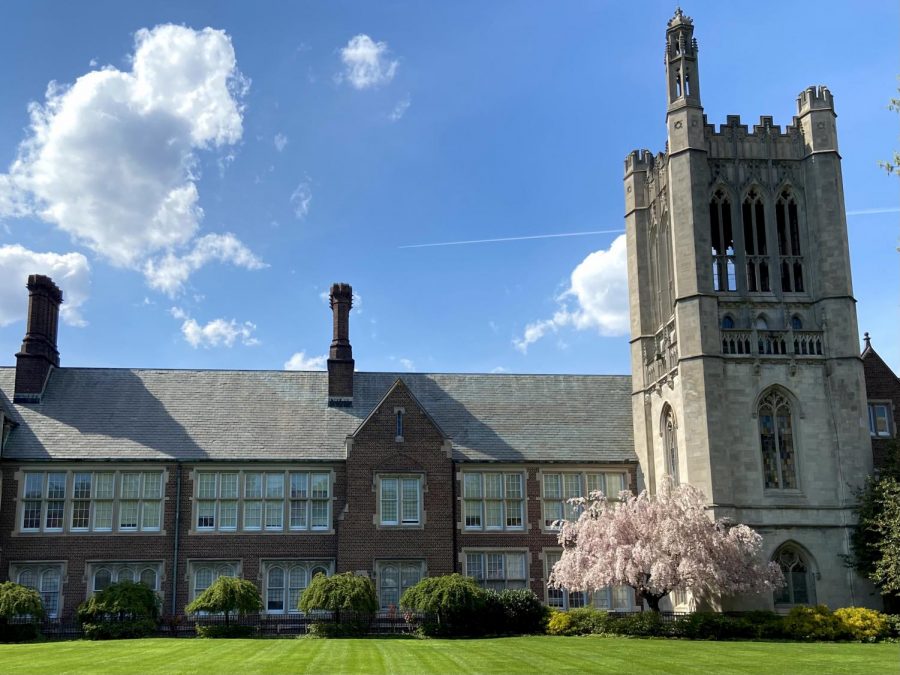Talk of Another Tuition Increase
Professors and Students Speak Out During Board of Trustees Meeting
Hepburn Hall
April 27, 2021
The Board of Trustees held a “Tuition & Fee Hearing” to discuss a potential tuition increase of 2.5 percent. Many students expressed their thoughts during the meeting.
Jim White, chief financial officer, explained at the beginning of the meeting that a tuition increase between 2 to 4 percent has been under consideration for the 2022 fiscal year, but they are leaning towards a 2.5 percent increase. The official decision will be made at the next Board of Trustees meeting on June 28.
For the 2021 fiscal year, a 3.5 percent increase had been implemented.
President Sue Henderson noted that NJCU is still one of the most affordable institutions in the state. In addition, she spoke about how the Garden State Guarantee (GSG) program, as well as pell grants, could continue allowing roughly 60 to 70 percent of NJCU students to be debt-free after college. The GSG program helps institutions make tuition costs affordable for students.
Notably, there is no proposed increase for out-of-state tuition as it is currently much higher than in-state tuition.
Joseph Moskowitz, a professor of Political Science, spoke about the textbook fees that many students are charged on their tuition bills. Typically, students would have to opt-out of the textbook program if they do not want to be charged the fee.
Moskowitz pointed out that many students, such as freshmen, would not be aware that they have the opportunity to opt-out of the textbook charge. Moreover, Moskowitz speaks of his experience that students in his course might be getting charged nearly three times what his required textbook actually costs.
Moskowitz said, “I am concerned about the details of this program and I request that the Board sort out this problem so that people are not disadvantaged.”
Ricky Cruz, president of the Student Government Association, spoke about two concerns that he has with the tuition increase. The first being a decrease in enrollment among continuing students from the result of a higher tuition price. The second concern that Cruz presented was in regards to the GSG program. He pointed out that it would save the university money by eliminating spending for the “Debt-Free Promise Program,” therefore a tuition increase would not be as applicable since NJCU will be saving funds with the help of the GSG program.
Cruz said, “We need to ensure that for the growth of our university, for the growth of our students, that we continue to be affordable and looking at them for every situation.”
Sophomore Biology major, Omar Kanaan, expressed his concern based on not enough sections offered for many science classes, “Don’t we have enough budget to open more sections of STEM classes?” If the university goes through with the tuition increase, he hopes to see more improvements being made.
Kanaan continued, “I don’t want more TVs and cameras in the Science Building, I want classes. I want to register for classes. I don’t have time to wait for the next year or the next semester to register for my classes. I am about to graduate, I am following this specific schedule; if I am not registered on time, I will be behind.”
Sebastian Jaramillo, an NJCU student, spoke about his experience with having to get a job to pay for $180 in tuition. He said, “For a university that costs $44,000 to get a bachelor’s degree and not being able to afford $180, it says something. It says something about our condition, says something about the condition of the community, and it’s something that everyone as an administration should address as a completely autonomous unit because we come from working-class families. We’re not millionaires, we’re not going to Harvard Law, we’re not going to Princeton, and you see, NJCU isn’t on the same level as those universities.”
Jaramillo continued, “I also heard in the meeting that the tuition increases are also kind of proportional to the other universities in the state, but New Jersey City University is not like any other university. It is specifically designed as a safe haven for marginalized groups, minority groups, and it’s something that we all really love. It’s very welcoming. But the fact of the matter is, that those same groups that you’re serving don’t have enough money for this tuition increase, and it’s upsetting that we have to go through this again because this is the second one consecutively.”
The final student speaker at the hearing, Alan Cruz, vice president of public relations and marketing for the Student Government Association, talked about his experience with having to take out a loan during his second year at NJCU. He said, “One thing I don’t necessarily agree with is the constant increase in in-state tuition, since this is our biggest population, and we get a lot of in-state students because of the community and the services that are provided here at NJCU. I just want to point out that although education is a business as well, in order for a business to keep thriving, you have to satisfy your customers, and price increase doesn’t satisfy the customer unless services increase. So that’s one thing that I really want the University to focus on is an increase in services as well, regardless of if there’s a tuition increase.”












